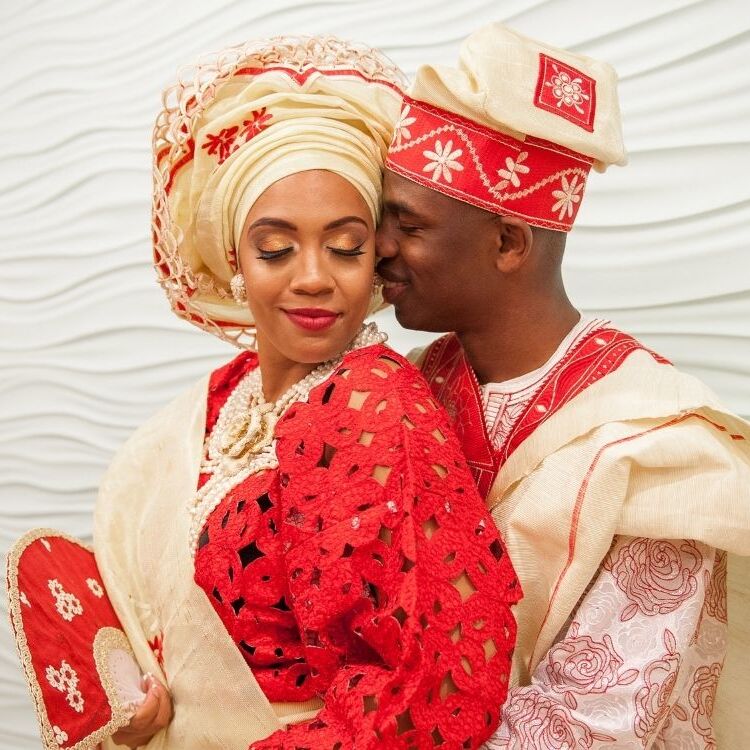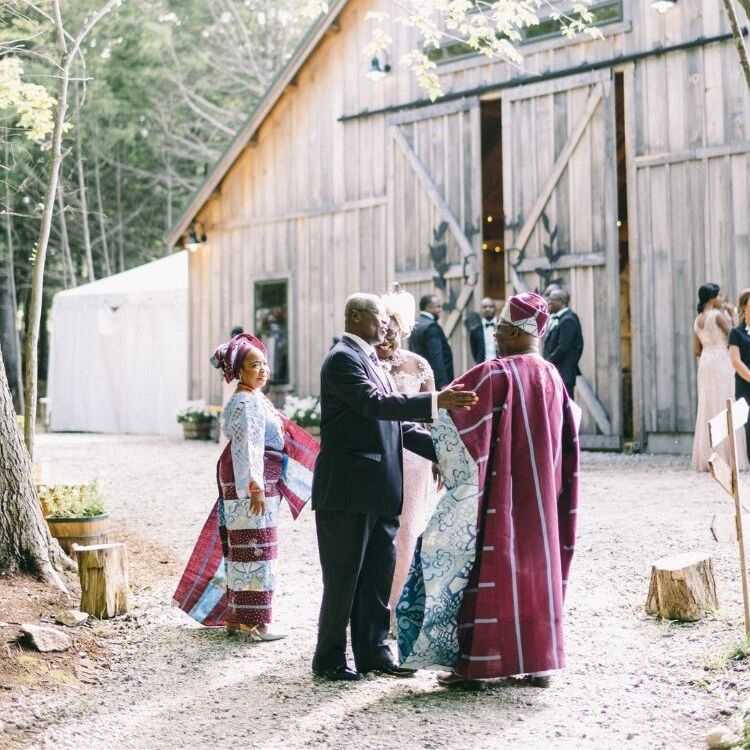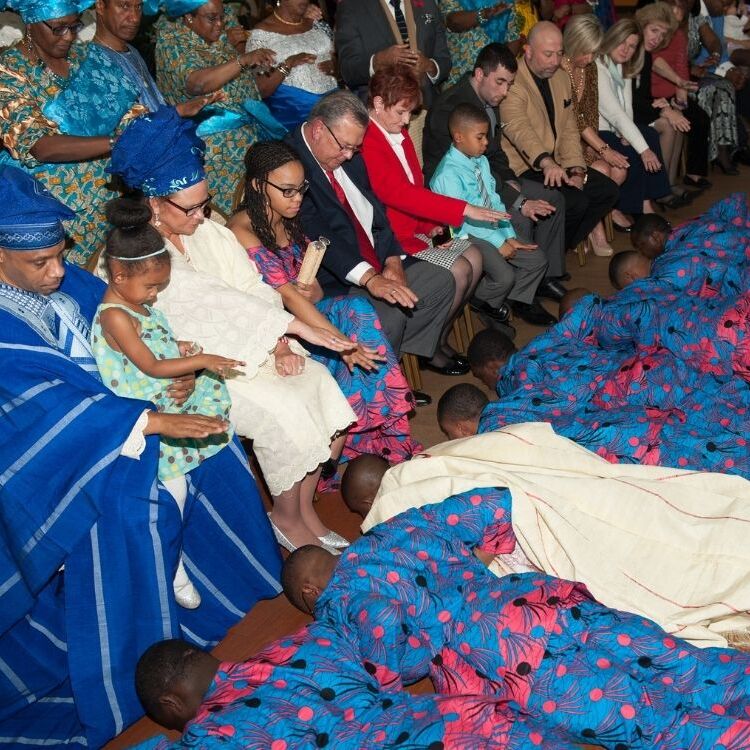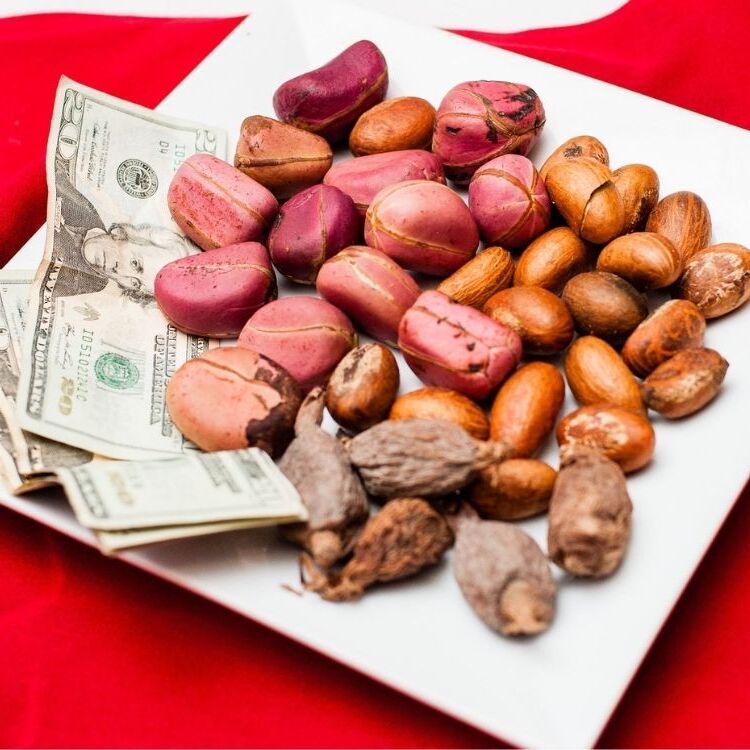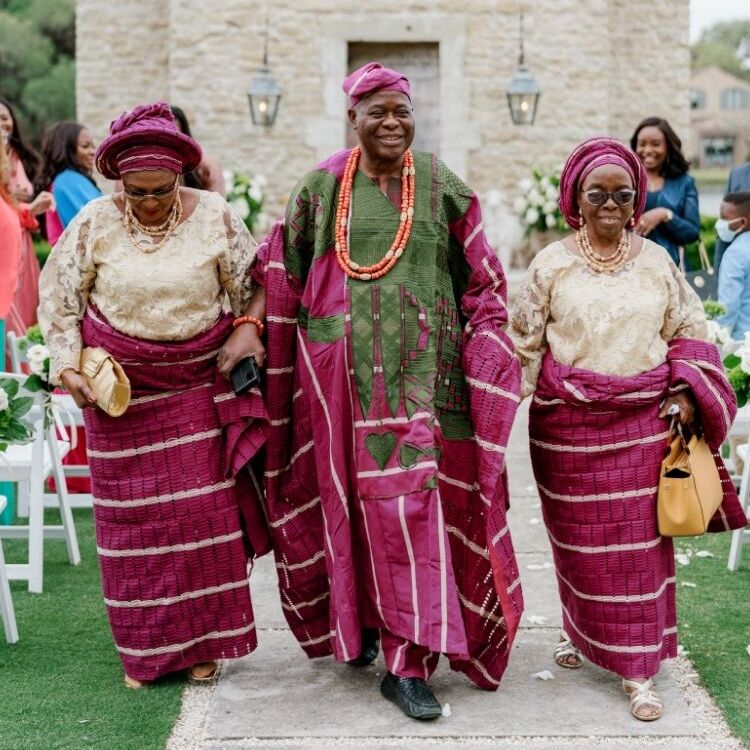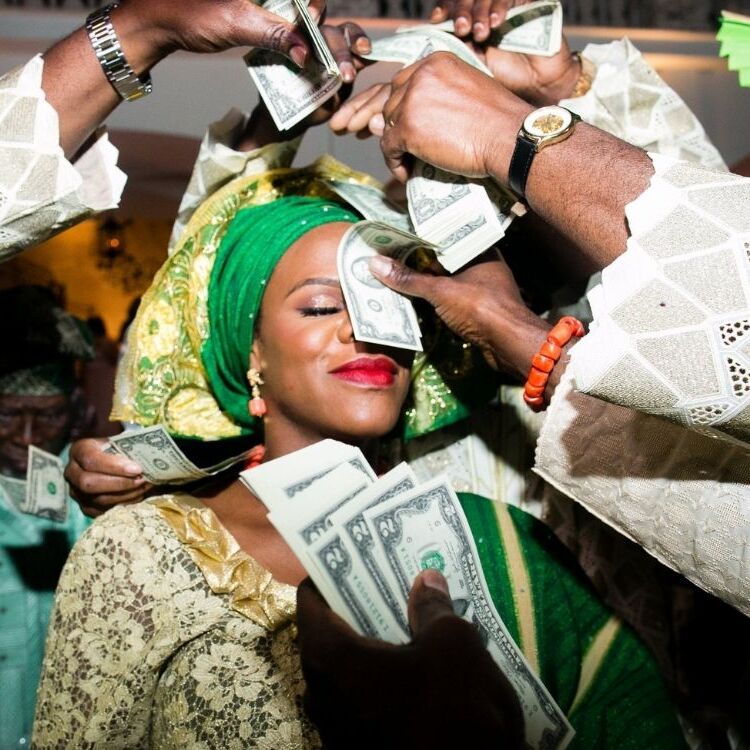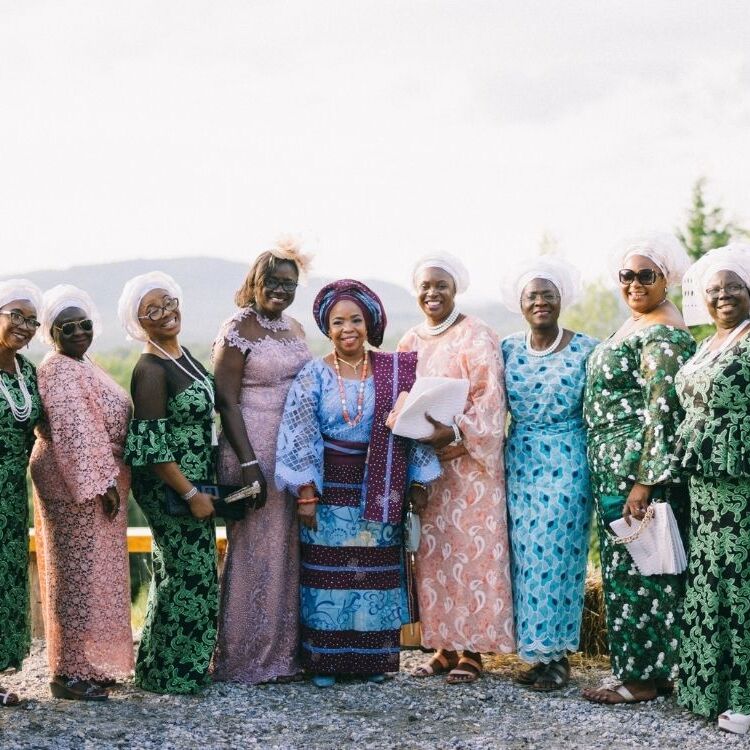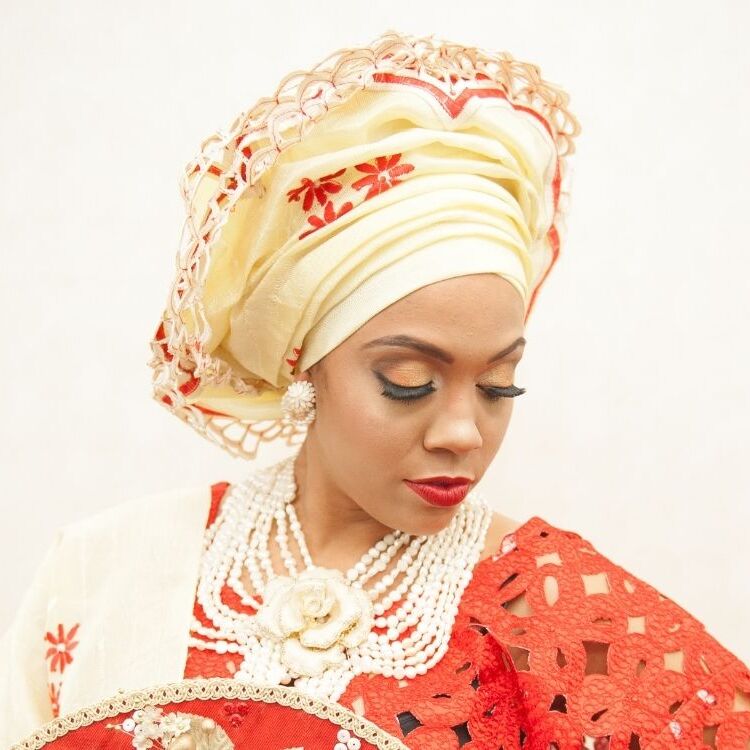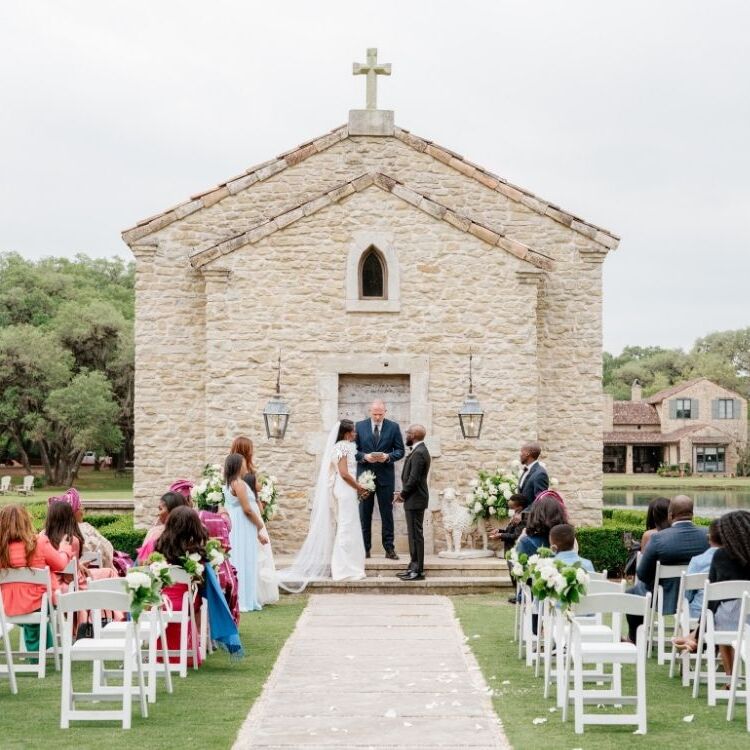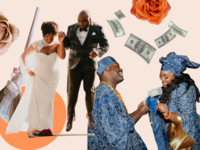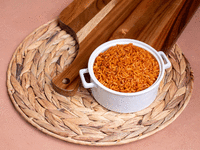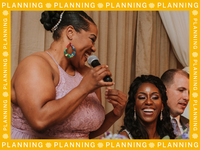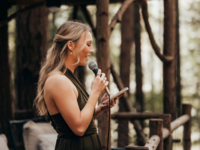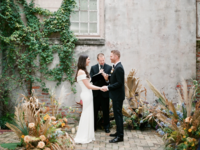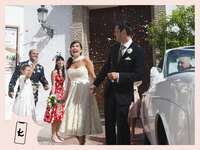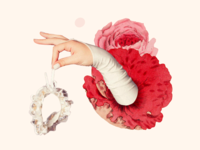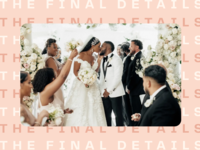Nine Nigerian Wedding Traditions to Know, According to Experts
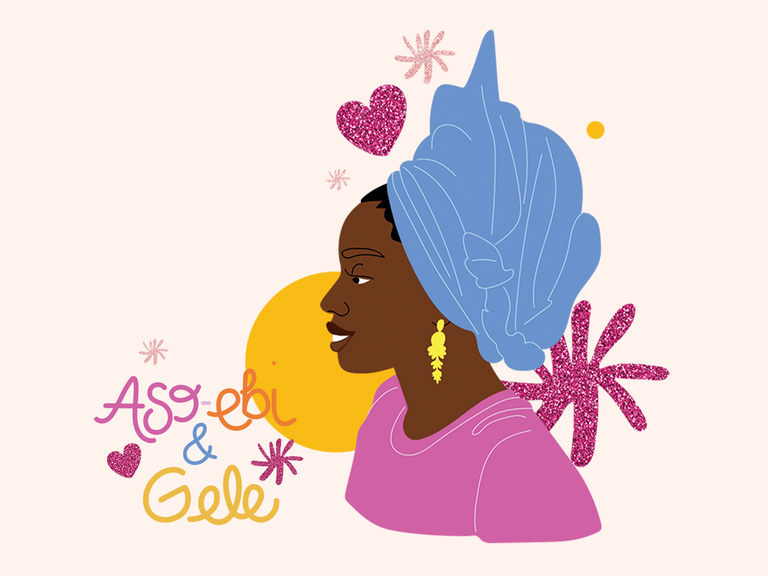
Are you planning a Nigerian wedding? For couples in the midst of wedding planning, personalization and finding ways to honor heritage are often a big priority. However, ensuring guests understand why those decisions are being made is also important so that everyone in attendance can participate fully in the day and honor the wedding customs that were thoughtfully woven into the wedding day.
Nigerian weddings are not a one-size-fits-all affair—with an estimated 371 tribes in Nigeria, the weddings celebrated by Nigerian couples are as diversely beautiful as the African country itself. If you're attending a Nigerian wedding for the first time, there's a good chance the nearly-newlyweds may be honoring one of the three biggest tribes: Igbo, Hausa and Yoruba. Furthermore, the to-be-weds may choose to weave Nigerian wedding traditions and rituals into many aspects of the event. To help you understand what to expect, Atlanta-based wedding expert Bisola Esiemokhai, owner of Event Design by BE, is weighing in on everything you need to know when it comes to traditional Nigerian weddings. Esiemokhai notes that "being Nigerian myself, I always feel a strong sense of pride seeing a whole room of people celebrating the Nigerian culture as a whole. It's a great feeling when we can collectively celebrate who you are and in such an overt way."
In this story:
- The Differences Between Igbo, Hausa and Yoruba Weddings
- Nigerian Wedding Traditions
- Modern Nigerian Wedding Traditions
The Differences Between Igbo, Hausa and Yoruba Weddings
When it comes to incorporating heritage-related elements into a wedding, it's paramount that couples do so in a way that feels right for them and allows them to still plan a wedding that is uniquely their own. The weddings Nigerian couples celebrate have many similarities, but there are also many differences that make each event distinct and should be understood.
"The order of events of the traditional Nigerian ceremony for Igbo, Hausa and Yoruba weddings are very different. There are also slight cultural nuances," explains Esiemokhai of the differences between Igbo weddings, Hausa weddings and Yoruba weddings.
Igbo Weddings
At Igbo weddings, Esiemokhai explains that "the main ceremonial act during an Igbo wedding is the wine-carrying ceremony where the bride has to find her husband who is hiding amongst the crowd. This is not included in Yoruba or Hausa weddings."
Hausa Weddings
Beyond differences in Nigerian wedding ceremony tradition differences, "there is also a big difference in the attire for Igbo, Hausa and Yoruba traditional weddings," says Esiemokhai. "Without being told, most people can identify the ethnic background of the bride, groom or families simply by their choice of attire. Igbo grooms normally wear a red cap and a specific fabric called Isiagu which depicts a lion head on it. The color of the hat and lion head is a symbol of the Igbo culture. With Yoruba traditional wedding attire, grooms normally wear an agbada which is a 4 piece outfit (including a matching hat)." Meanwhile, traditional Hausa wedding grooms often don a Hausa cap, or woven hat, known as a fula as part of their distinct outfit.
Yoruba Weddings
"Yoruba weddings, the bride is asked to pick out the most important item within the gifts that the groom's family provided to the bride's family and she must always select either the Bible, Quran or a symbol of her faith which is where her ring is," notes Esiemokhai. She goes on to explain that another difference in Yoruba weddings is that "prostrating is usually done by Yoruba grooms while Igbo grooms typically kneel."
Nigerian Wedding Traditions
Despite tribal differences, there are some customs traditionally included in most Nigerian weddings. These traditions aren't limited to just the wedding day, Nigerian weddings are noteworthy from the very start with the unique way that proposals are traditionally handled.
1. Proposal
How many days are Nigerian weddings? Well, before the main event even arrives, a proposal ritual takes place. "The proposal typically kicks off with an introduction," says Esiemokhai. Traditionally, with heterosexual couples, "this is where the groom and select family members go to the house of the bride's family to introduce himself and make known his intentions. However, this isn't the first time that the groom or his family are meeting as, typically, the groom and/or his family are usually known to the bride's family. At the conclusion of this introduction (which may last a day or a series of meetings), the bride's family gives the groom and his family a list of items (which will vary from tribe to tribe in Nigeria) which, if fulfilled, will signify that the groom is really serious about moving forward with his marriage proposal."
2. Bride Price
Are you wondering, "Who pays for what in a Nigerian wedding?" Historically, as a sign of respect to the bride's parents and her side of the family, a bride price or dowry is often given from the groom's family ahead of the wedding date. "Bride prices or dowry are usually something material—think money, home items, food items or physical property that is given to the family of the bride from the groom's family, as a symbol of appreciation in recognizing the role the bride's family played in raising her," says Esiemokhai. "The bride's family typically comes together to create the list. Lastly, the dowry is often seen as the 'I do' answer by the groom, to the question of whether he is ready to marry the bride."
Esiemokhai emphasizes that it's important to understand that "the concept of bride price is oftentimes viewed (by other cultures) in a negative light as somehow implying 'ownership' of the bride. This couldn't be further from the truth. As previously stated, the bride price is symbolic of the groom's intention of marrying the bride as well as showing love and appreciation to the bride's family for the hand they played in raising the woman he will get to call his wife. It's an acknowledgment of the sacrifices her parents and family members may have made throughout their lives, the investment they made in her education, etc. This is why the bride price is not only items for the parents but for specific family members as well."
3. Prostration
Another tradition that serves as a sign of respect at Nigerian weddings is the practice of prostration. "Prostrating in Nigeria is often done during the traditional wedding, to show respect and reverence to older family members, normally to the bride's family," explains Esiemokhai. "Usually, the groom and his (mostly, if not all) male entourage are the ones who pull this off at a time usually specified by the master of ceremonies (or MC) for Igbo weddings and Alaga Iduro and Alaga Ijoko for Yoruba weddings. While prostrating on the floor, the bride's family would then pray for the success of the newly married couple."
4. Kola Nuts
Consuming Kola nuts, which have a similar appearance to chestnuts, is a common practice at Nigerian wedding ceremonies. "The Kola nut is a product of a tree that is native to West Africa," says Esiemokhai. "It is presented and shared by all family members at significant ceremonies including wedding introductions and weddings ceremonies as a symbol of hospitality, friendship, love and respect. It has a bitter aftertaste so it's definitely not for the faint of heart."
5. Aso-ebi and Gele Nigerian Wedding Attire
Wedding attire is a big part of any wedding, whether it's a cultural wedding or not, and this is especially true of Nigerian weddings. Aso-ebi, which translates to family clothes, are a key part of Nigerian wedding attire. As part of their aso-ebi wedding attire, which includes a colorful kaftan-like wedding dress, Nigerian brides will generally also don gele, which is a Nigerian headpiece or head tie made of fabric that matches the wedding dress.


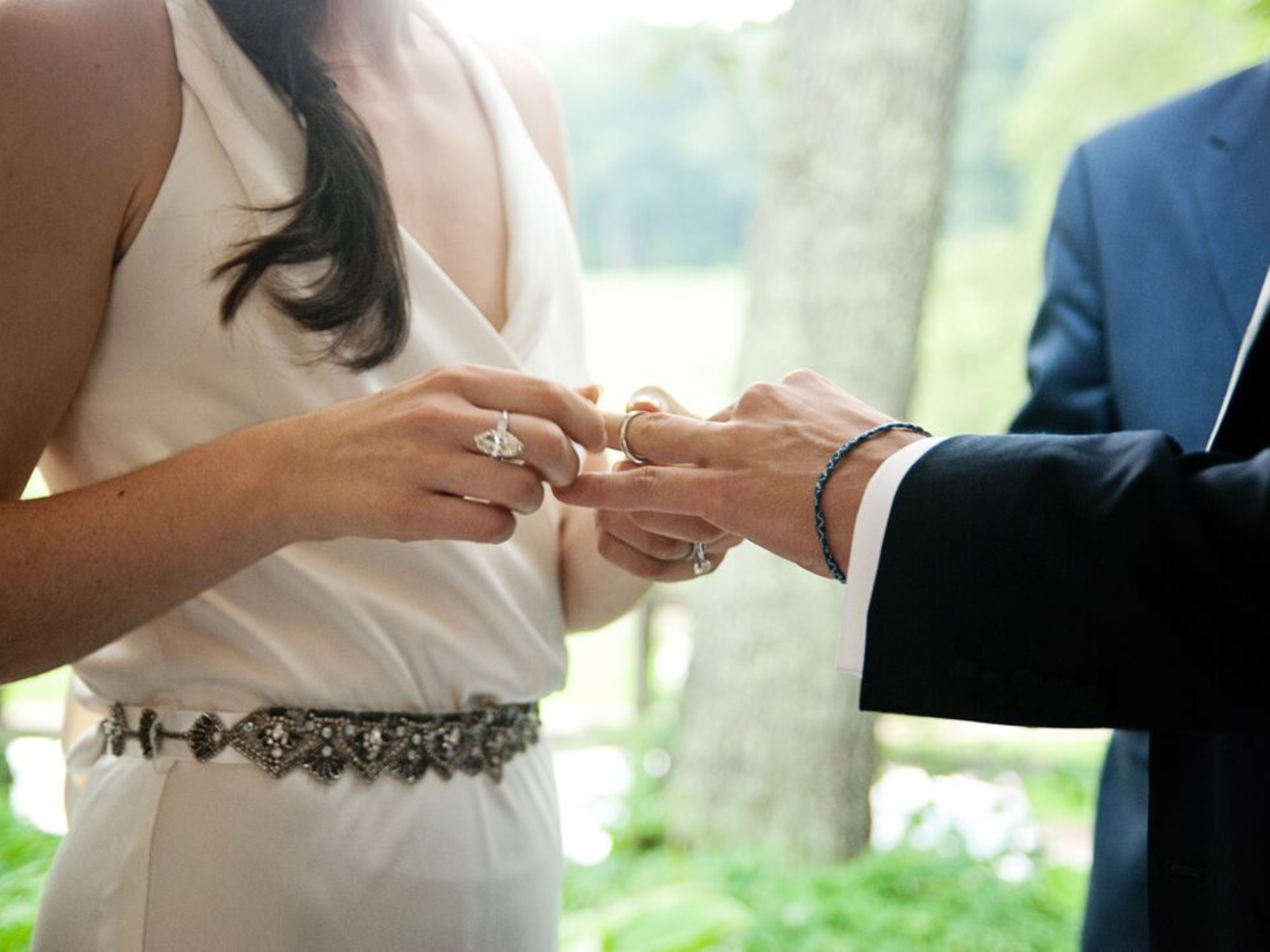
"Aso means clothes or fabric and ebi means family," explains Esiemokhai of traditional wedding attire in Nigera. "The word is Yoruba but Igbo and Housa people use the same term as well since it's a popular phrase. Aso-ebi refers to a particular fabric and color that the families of the bride and groom coordinate to wear on the wedding day to visually set them apart from other friends, family and well-wishers who come to celebrate with the couple and their respective families. The entourage for the groom and bride have their own aso-ebi outfits as well. The bride's entourage is normally called 'aso ebi girls' and are the women who help her dance into the wedding. Wearing aso-ebi on the day of also means you get some of the best seats in the house because you are considered a close family or friend."
6. Money Spray
Similar to the money dance seen at many Filipino weddings and at nuptials throughout much of Latin America, Nigerian weddings often include a money spray. Esiemokhai explains that "dancing during Nigerian weddings is oftentimes the highlight of the event itself. Usually, this is kicked off by the parents and close family members at the start of the traditional Nigerian ceremony and then later when the bride and groom make an appearance with their individual entourages and then together as husband and wife once they are officially traditionally married."
Esiemokhai goes on to note that "money spraying is something done to show love to the newly married couple and to wish them wealth, prosperity and abundance. Oftentimes, guests will forgo wedding gifts and consider spraying their contribution to the couple. Usually, family members will nominate money pickers (normally kids or teenagers) whose role is to ensure that all the money sprayed throughout the night is picked up periodically off of the floor and provided to a specific family member who is in charge of all the money received. This person is also in charge of changing large bills for guests ($20, $10, etc) who want to spray the couple throughout the night. I always have a separate 'change table' incorporated in my floor layouts so the individual assigned to this role can have a designated place to sit near the dance floor and enough room to count and be organized. Having this table is also good because all guests know where to find them. At larger weddings, it isn't at all surprising that money sprayed on the couple can exceed $5,000 in some cases."
7. Large Guest List
Typically, lots of people will be invited to a Nigerian wedding ceremony and reception. Beyond just the couple's immediate family and wedding party members like bridesmaids and groomsmen, the guest list will include extended family members. According to Esiemokhai, "in Nigeria, weddings are often viewed as a communal effort/ event in which everyone should come together to celebrate what is viewed as one of the most important accomplishments—marriage. This means that oftentimes, both the bride and groom's families adopt an open invite or 'show up and you're welcomed' mindset driven primarily by a need to celebrate such a momentous occasion with friends, family and acquaintances. This nuance is still the case for Nigerian weddings taking place in the United States. The large guest list is also brought on by parents who have the mindset of inviting everyone because it can get very political in who you invite and exclude. I've also noticed that if parents are a part of large churches or local Nigerian organizations they feel obligated to invite everyone which also leads to the large guest list."
Modern Nigerian Wedding Traditions
While many of the customs outlined above are still included in Nigerian weddings, some modern couples are also choosing to adapt and personalize the Nigerian wedding traditions they include in the big day to ensure the entire event feels personalized and reflective of their partnership. Notably, many modern Nigerian couples are adapting traditional wedding attire and are even shifting toward hosting multiple events for their wedding. Here's a look at some modern Nigerian wedding ceremony and reception traditions.
1. Auto-Gele Wedding Attire
Because of the complex nature of the gele head tie wedding attire, Esiemokhai explains that something people may not be aware of if "the invention and popularity of the auto-gele." She explains that the gele headpiece is worn by many women attending the wedding, however, "it can take 10-20 minutes per person to create (depending on the design selected) by a 'gele woman' which is a person that has the skill to create beautiful and unique designs with the fabric given. When I have couples who want to change into traditional attire during their American reception and/or brides who have large entourages who will dance in with them, having each woman get their gele tied can take a while; even with multiple gele women on hand."
The time it takes to tie a gele has "given rise to ready-made geles within the last few years that only take seconds to put on. The auto-gele is already sewn in a design and all you have to do is place it on your head, collapse the excess material in the back and align the velcro strips provided. I absolutely love it. This saves so much time and allows everyone to have a beautiful gele but in a fraction of the time. There are many different designs, embellishments and colors out there now so everyone won't look the same. Time is so precious on the wedding day that we don't want to spend it waiting for everyone to get their gele tied. I still do hire gele women specifically for the bride or moms so they can have a unique or more over-the-top gele design but that does not take nearly as much time."
2. Single-Day Double Ceremonies
Another practice to note with modern Nigerian weddings is that many Nigerian couples may host both a cultural Nigerian wedding ceremony and a Western or American wedding ceremony.
"Couples will have two-day weddings or one-day weddings with two different ceremonies because the traditional wedding is where the couple gets married culturally and focuses on honoring their culture, lineage and traditions," says Esiemokhai. "The parents and families have more say and input on this day. In America, the traditional wedding has no legal backing so the couple would still not be considered legally married after this day but they are married in the eyes of their parents and family members. The white wedding, which is oftentimes but not always, held after the traditional wedding, is where the couple has more say on what they want and are legally married by a pastor."
Esiemokhai goes on to explain that "over the last 2-3 years, I've seen the rise in couples wanting to have their traditional Nigerian wedding and their American 'white' wedding on the same day. This year alone, I'm executing five of them. It's possible but with very strict logistics that only a wedding planner should take on. The order of the day will involve the traditional wedding happening in the morning, usually with a start time between 8 am or 10 am and a strict 2-hour timeframe for the traditional wedding to play out. Then about a 3-5 hour transition until the American ceremony happens. Hair, changing, photo and video take place during this transition time before the American ceremony. And then the cocktail hour and reception follow afterward. There is a lot to consider with this format from a logistical, budget and guest perspective but it is possible and many couples are opting to do it all in one day."

